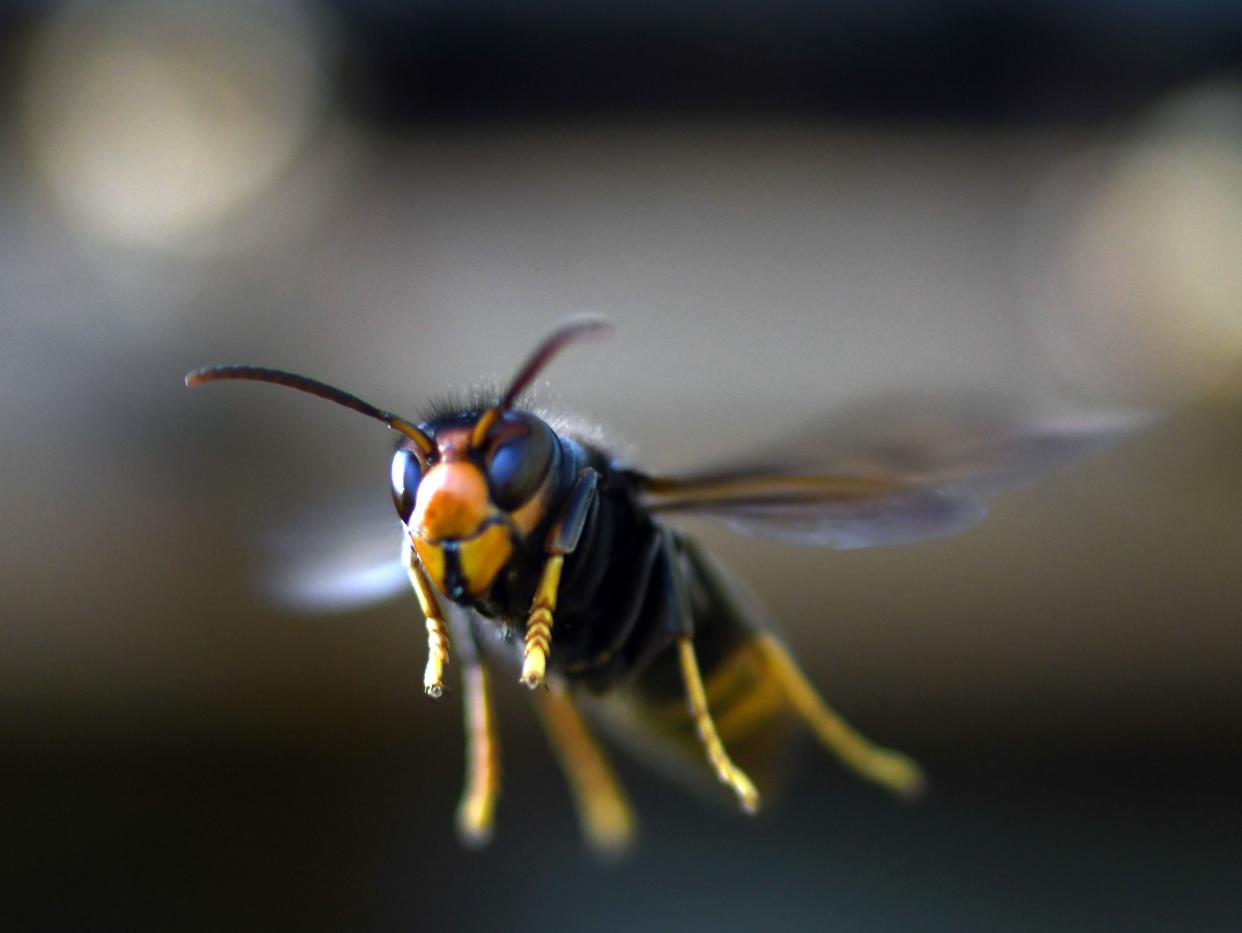Asian hornets: Scientists ask Britons to help stop invasion of insects

People across the UK are being asked to help prevent an invasion of bee-eating Asian hornets to protect food crops, by reporting sightings of the species.
The non-native predators can eat up to 50 honey bees in a day, which would put crop pollination at risk, experts say.
Scientists want the public to submit potential sightings of the insects and their nests to a new interactive map that aims to track the spread of the Asian hornet.
Asian hornets were first introduced to Europe via France in 2004, and have since spread rapidly, according to the gardening site whatshed.co.uk, where sightings can be reported.
Since the first UK sighting in 2016, the Asian hornet has rapidly spread, it says.
There have now been 17 sightings in the UK, according to the Department of Environment, Food and Rural Affairs (Defra), with the most recent spotted in Dorset in late 2019.
Experts warn the environmental destruction they cause could cost the UK up to £7.6m every year, the site says.
Asian hornets, which are smaller than native European hornets, are more likely to be found around southern England and Wales and ports.
They look like an unusually large wasp, with a dark brown or black velvety body, yellow-tipped legs and a yellow band on their abdomens.
They are distinct from “murder hornets” - Asian giant hornets – which have been spotted in the US.
People around the UK are asked to keep an eye out for Asian hornets all year round.
Kate Fromings, of Whatshed.co.uk, told MailOnline : “The spread of Asian hornets is not something that should be taken lightly.
“Swarms can decimate a colony of honey bees in a matter of minutes, putting our crops and farms at risk if they are able to invade the UK successfully.
“Uploading sightings to this map will ensure that the necessary authorities can be contacted to confirm the sighting and handle the case properly, whilst also enabling scientists to carry out important research into the movements of this species.”
Read More
UK weather: The latest Met Office forecast
Mysterious black sea goo that invaded a Maine beach turns out to be thousands of dead insects

